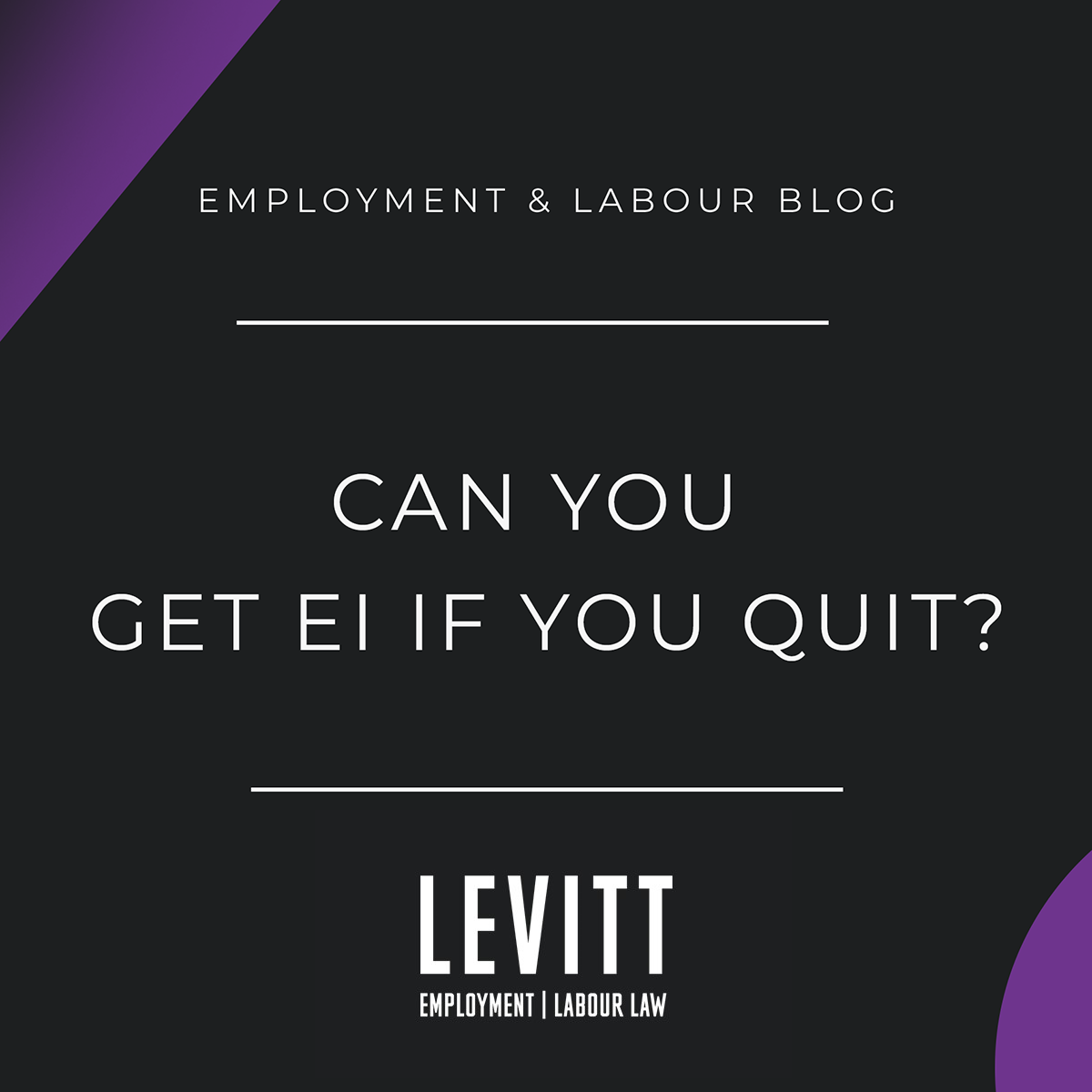Can You Get EI If You Quit?
There are a number of situations in which an employee will not receive EI. For example, an employee who quits their job may not receive EI. Eligibility for EI depends on the circumstances and whether or not the employee had “just cause” to quit. There are also circumstances where an employee who quits will receive EI. Some of these examples are listed below.
Voluntary Leaving
“Voluntary leaving” is essentially the same as quitting. It means the employee, not the employer took the initiative and steps to end the employment. If an employee leaves their employment voluntarily without taking every reasonable alternative available to them to avoid unemployment, then they will have been deemed to have left without just cause and will not be eligible for EI benefits.
Just Cause
In order to receive EI after voluntarily leaving your employment, you must show that you had just cause to quit. Demonstrating just cause goes far beyond simply showing you were unhappy with your job. It means showing that quitting was the only reasonable alternative considering the circumstances and that you took all the necessary steps to avoid being unemployed.
Before deciding to voluntarily leave their employment, an employee should do everything they can to resolve the problem that made them want to quit in the first place. Even if an employee believes they have good reason to quit, they may not be justified in doing so if they have not taken all reasonable measures and alternatives. Examples of reasonable measures and alternatives include:
- Discussing the problem with your employee and requesting adjustments
- Using recourses available under your employment contract
- Consulting HR
- Exploring alternative work schedules
- Explore a work-from-home option
- Ask for a leave of absence
Circumstances Where Quitting is Justified
There are circumstances where quitting is justified. Any of the following would be considered just cause for quitting your job:
- Harassment (sexual or otherwise)
- Needing to move with a spouse or dependent child to another place of residence
- Discrimination
- Working conditions that endanger your health or safety
- Having to provide care for a child or another member of your immediate family
- Reasonable assurance of another job in the immediate future
- Major changes in the terms and conditions of your job affecting wages or salary
- Excessive overtime or an employer’s refusal to pay for overtime work
- Major changes in work duties
- Difficult relations with a supervisor, for which you are not primarily responsible
- Your employer is doing things which break the law
- Discrimination because of membership in an association, organization or union of workers
- Pressure from your employer or fellow workers to quit your job
This list is not exhaustive and there are other reasons for quitting which could be considered just cause.
No “Just Cause” for Resigning? No EI.
If you quit your job without relying on “just cause”, i.e. a legitimate reason, you will not be eligible to receive employment insurance (EI). That means that you will only be able to receive if you have just cause for leaving. Voluntarily leaving your employment will only affect your regular EI benefits. Employees that voluntary leave their positions will still retain access to other benefits such as maternity and parental leave, sickness, compassionate care, and critically ill child benefits–if they meet the criteria.
Employee’s Responsibility
It is employee’s responsibility to provide all the information about what steps were taken and the reasonable alternatives that were considered before quitting. If you are considering quitting, you should consider all reasonable alternatives and keep a record of all measures you have taken to avoid quitting in order to maintain eligibility for EI benefits.
Conclusion
If an employee voluntarily leaves their job, they will not be entitled to EI benefits unless they had just cause to quit. To show just cause requires demonstrating all the steps taken to find an alternative to quitting or unemployment. Merely being unhappy at your job is not just cause for quitting. If you want to receive EI benefits after quitting your job it is important to establish that quitting was the only decision that could have been made given the situation.

